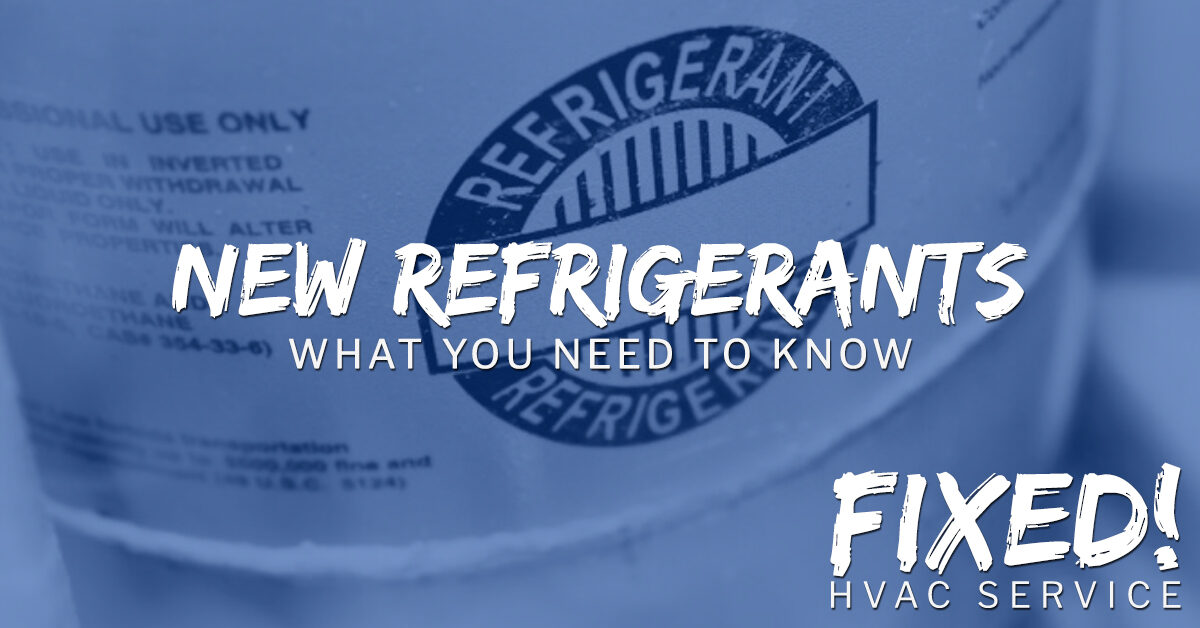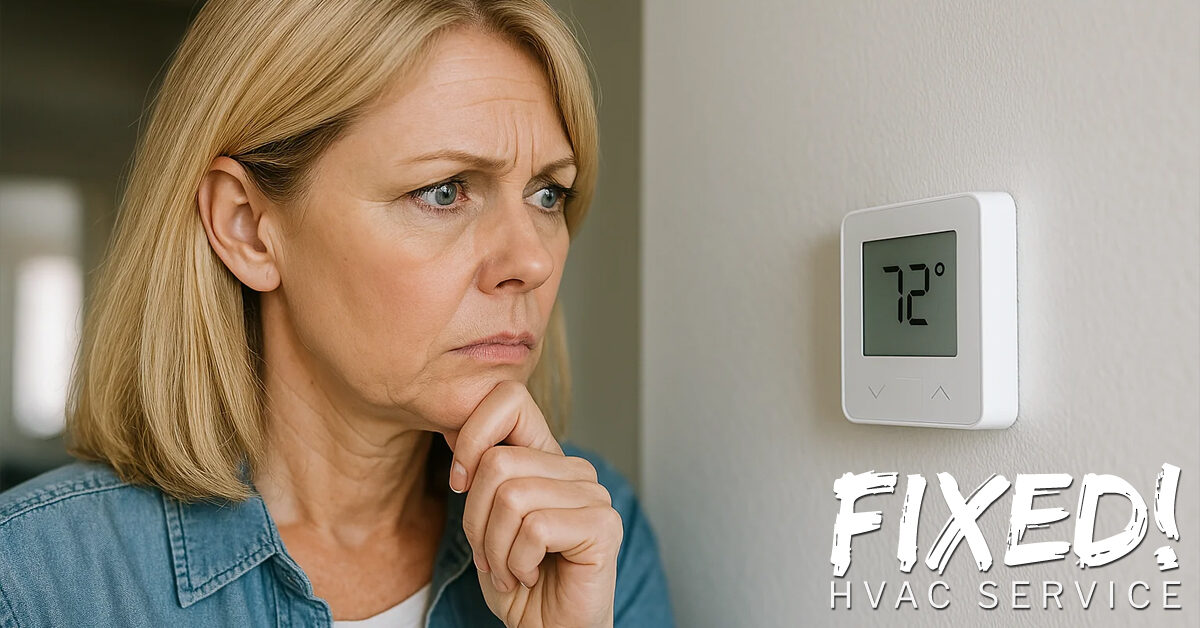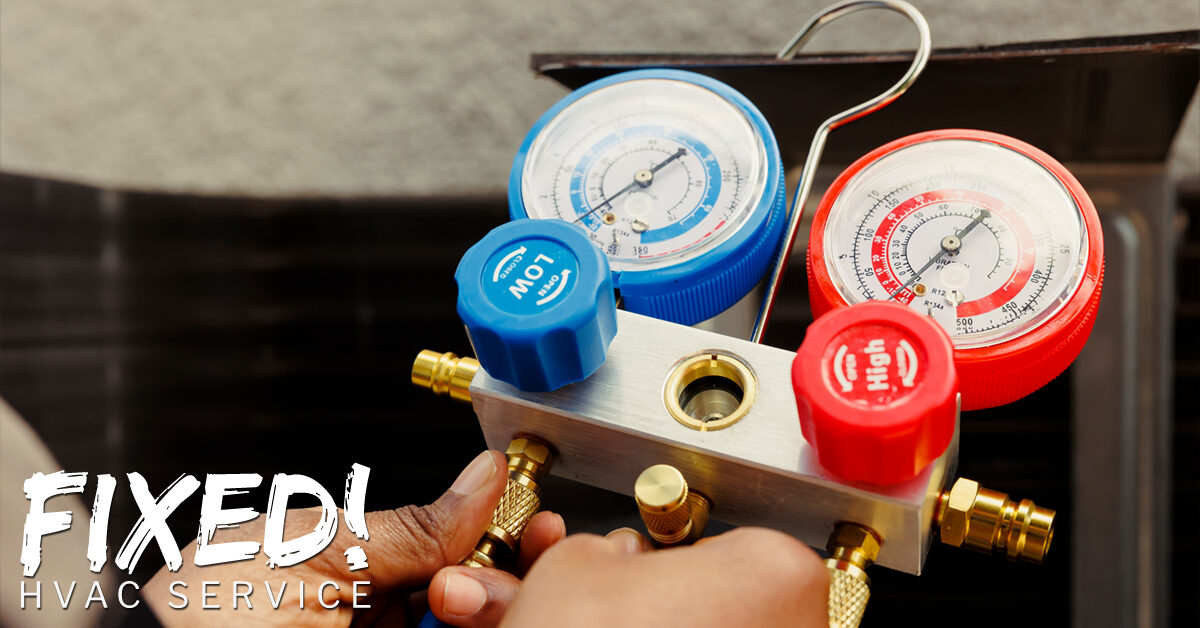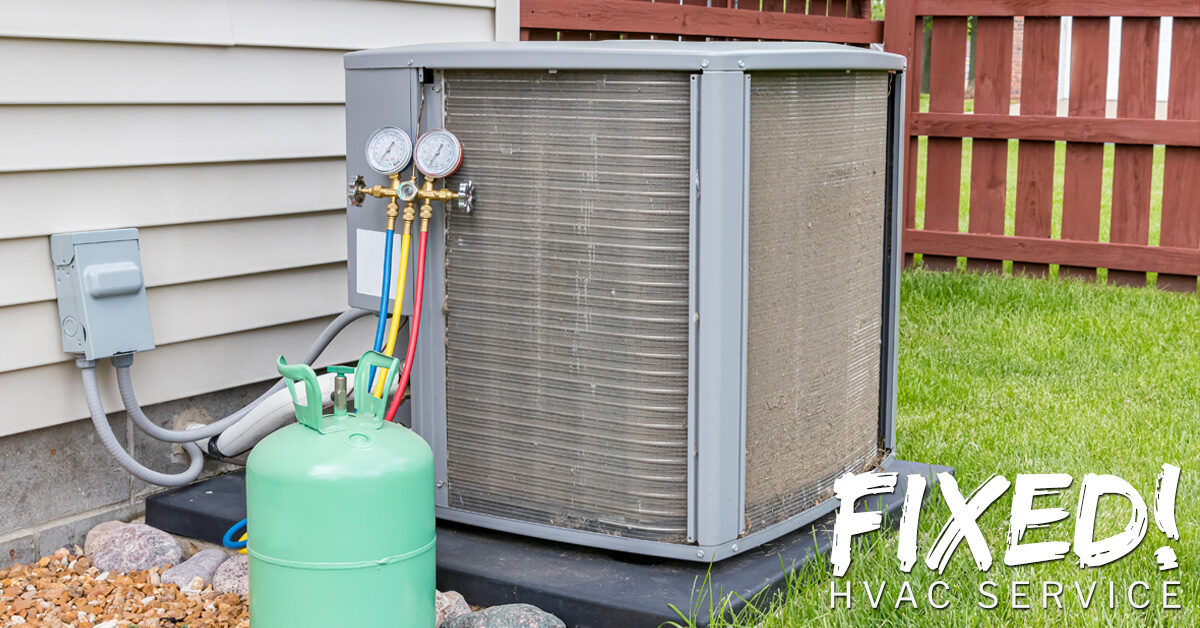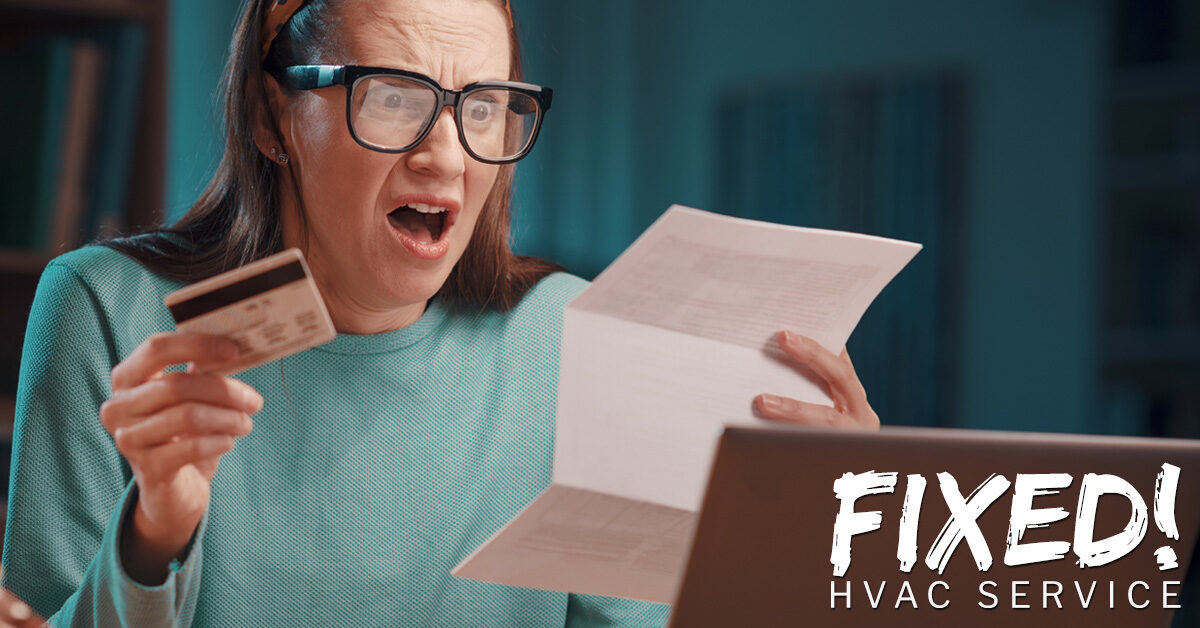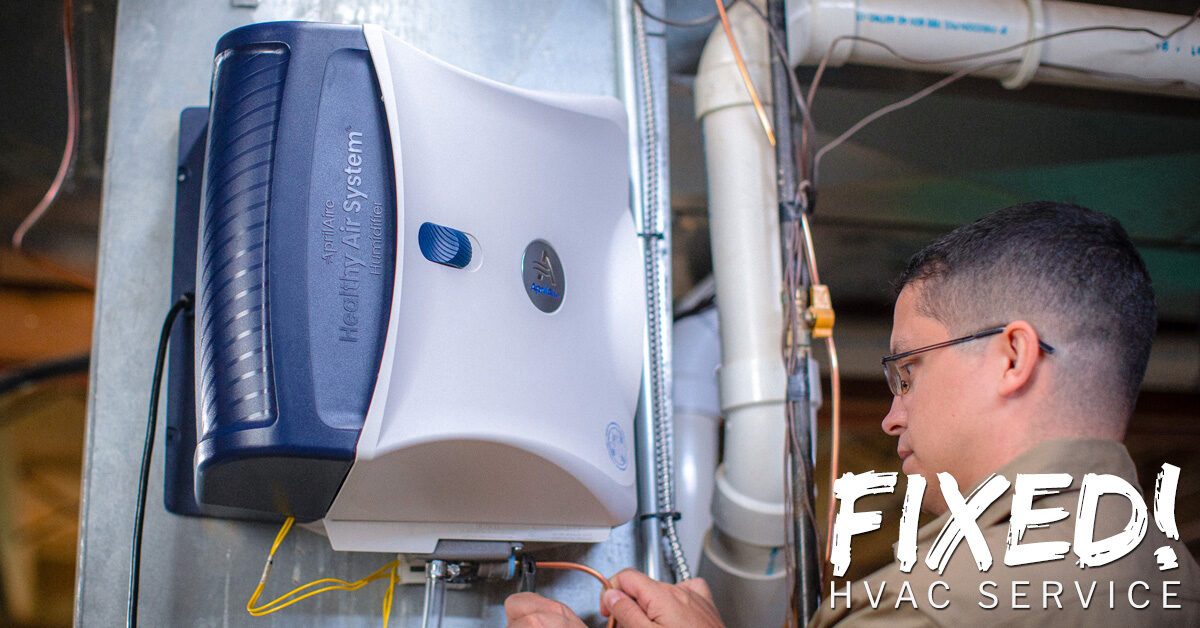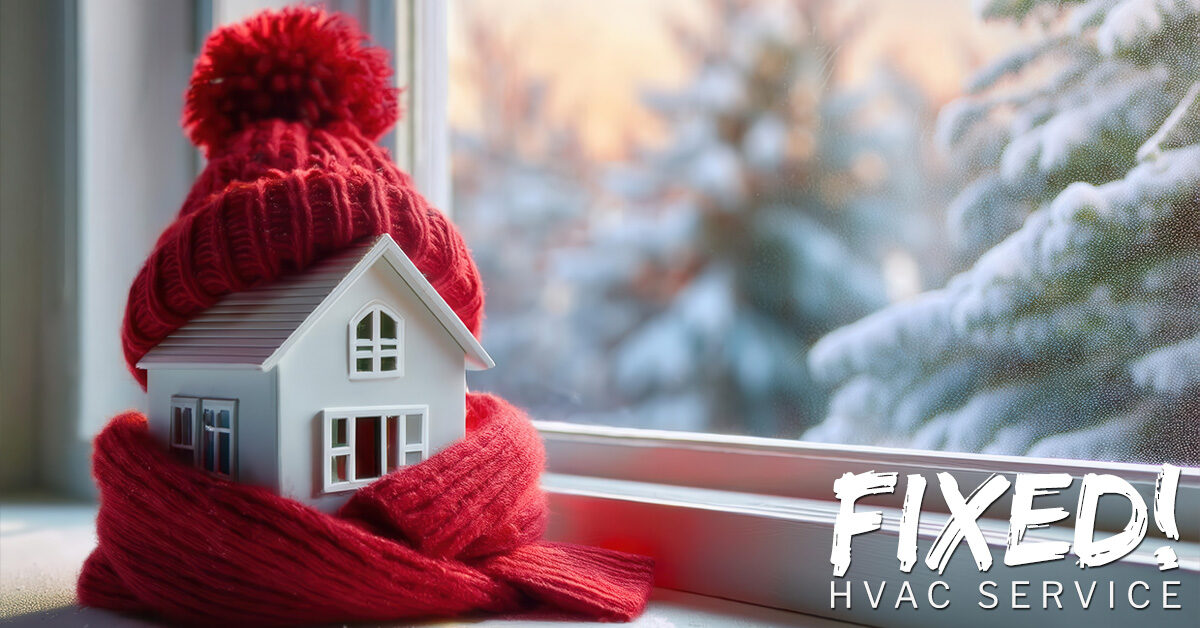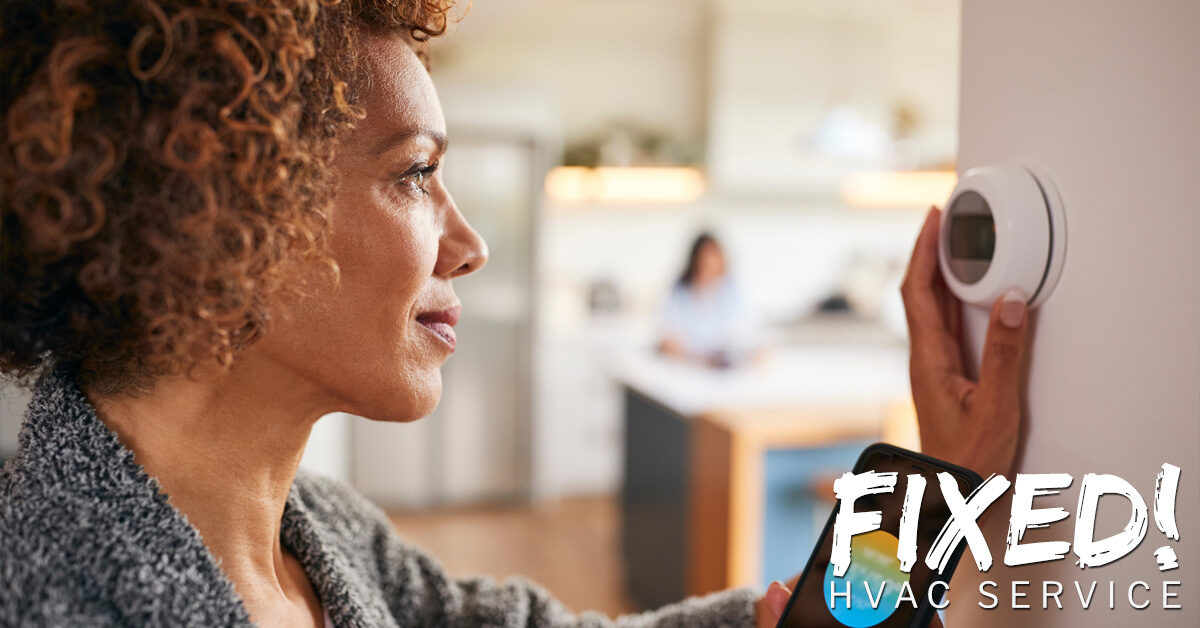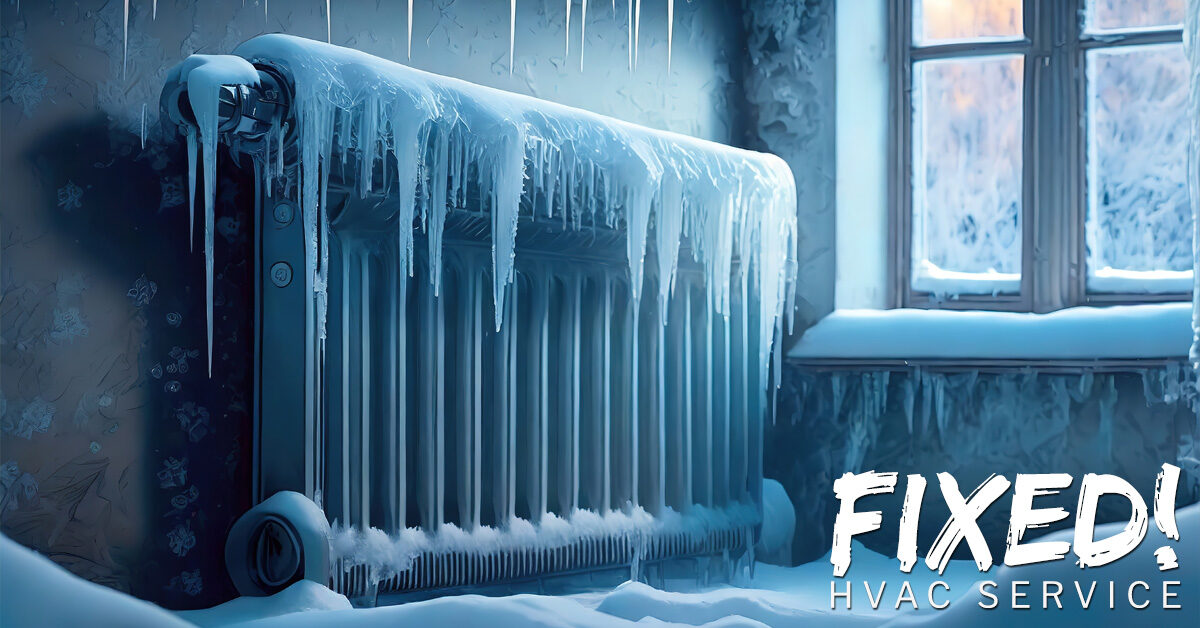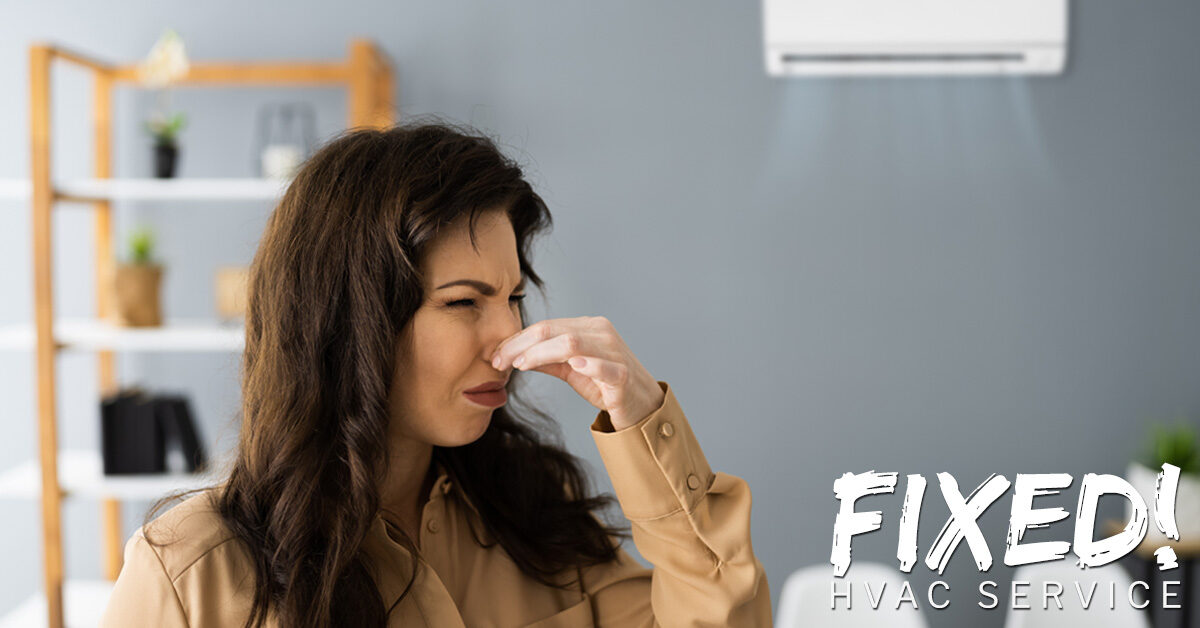If you’ve been considering replacing or upgrading your HVAC system, you’ve likely heard about new refrigerant changes. Maybe you’re wondering what these changes mean for you and your Annapolis home. At FIXED! HVAC Services, we’re here to provide clarity and practical advice about these important industry developments. New Refrigerant Regulations The HVAC industry has experienced hurdles with each refrigerant transition. One of the recent changes is the requirement of manufacturers to use refrigerants that have a lower GWP (global warming potential). As of the end of 2024, equipment that uses R410a was phased out, and is no longer available. Starting
Learn More →Heat pumps rely on refrigerant to move heat from one place to another. That chemical fluid circulates through the system to absorb and release energy. When the refrigerant level is off, your heat pump struggles to maintain indoor comfort. You may notice strange sounds, fluctuating temperatures, or frozen coils. These issues often suggest that your equipment needs professional attention. Pay attention to the early warning signs to fix small problems before they become costly repairs. Understanding the Role of Refrigerant A heat pump works by transferring heat rather than generating it. The refrigerant flows through coils and changes state from
Learn More →Most people still talk about “Freon” when describing what cools their home in summer. You might have grown up hearing that word from parents or neighbors. Others still call their local technician, saying, “I think the Freon is low.” “Freon” is a brand name for refrigerant, and does not point to any specific refrigerant at all. “Freon” was and is still used as a generic term for refrigerant, in the same way “band-aid” is used as a term for a self adhesive bandage. What Exactly Is “Freon”? Chemists originally created “Freon” as a brand name for a family of refrigerants.
Learn More →Early spring offers the perfect chance for an HVAC tune-up to prepare you for shifting temperatures. You might feel cautious about scheduling HVAC service right after winter. However, addressing potential issues now can prevent bigger troubles later. We will explain why a spring HVAC tune-up is important for Annapolis homeowners. We’ll also cover possible problems that arise after a harsh winter. Worn components may remain unnoticed until a new cold wave hits. Recognizing you’ve dealt with enough worries this winter, we want to ease concerns by showing how preventive measures protect your comfort and peace of mind. Why a Spring
Learn More →Many homeowners view free online HVAC estimates to gather information before making a buying decision on an HVAC system replacement. Heating and cooling systems often represent one of the biggest infrastructure investments for a home or business. Searching online for quick quotes may seem like a logical first step. Convenience, however, can sometimes hide serious drawbacks. Instant estimates might mislead you or fail to address your unique needs, or your homes’ existing infrastructure. That mismatch can lead to unexpected expenses, frequent breakdowns, poor performance, or higher energy costs. Our mission to provide steady guidance and clear information prompts us to
Learn More →Have you been thinking about using a whole house humidifier to improve the air quality in your home? Wintertime in Annapolis, Maryland, often brings freezing temperatures and dry air that lasts for weeks. Many homeowners rely on constant heating to stay warm. However, that continuous heat can lower already reduced indoor humidity levels. At FIXED! HVAC, we believe balanced moisture is vital for comfort and health. Let’s discuss why dry air can be a problem and how a whole house humidifier can help. The Downsides of Dry Winter Air Dry indoor air often leads to physical discomfort. You might notice
Learn More →Do you need a few energy saving tips to bring down those BGE bills? Winter in Annapolis, MD, can be quite chilly, and keeping your home cozy often comes with higher energy bills. At FIXED! HVAC, we believe you can enjoy comfortable indoor temperatures without breaking the bank. Here are practical tips to help you conserve energy during the colder months. 1 Schedule Regular HVAC Maintenance Annual inspections ensure your furnace, boiler, or heat pump operates at peak performance. A well-tuned system uses less energy and maintains consistent temperatures. Our FIXED! HVAC technicians will come to your Annapolis, MD, home
Learn More →Have you ever noticed that extra setting on your heat pump labeled “Emergency Heat” or “Aux Heat”? Many homeowners in the Annapolis area wonder what it does and when they should use it. At FIXED! HVAC, we’re here to clear up any confusion and help you understand this critical feature. Let’s explore emergency heat, when to activate it, and how to maintain your system for optimal performance. Understanding Heat Pump Emergency Heat What Is Heat Pump Emergency Heat? Your heat pump’s primary job is to transfer heat from the outside air into your home. However, your heat pump may need
Learn More →Heating your home during a freezing Winter in Annapolis can bring bone-chilling cold that tests the limits of your heating system. When temperatures dip below freezing, you need a reliable heat source to keep your family safe and comfortable. At FIXED! HVAC, we specialize in heat pumps, boilers, and furnaces, and we’re here to help you understand common issues and share tips for staying warm even when your system isn’t cooperating. Challenges with Heat Pumps in Freezing Temperatures Reduced Efficiency Heat pumps work by transferring heat from the outdoor air to your home. However, when outdoor temperatures plunge, there’s less
Learn More →Noticing a burning smell coming from your vents can be quite unsettling. It’s a situation that no homeowner wants to experience, especially when you’re relying on your heating system to keep you warm. However, understanding the potential causes can help you address the issue promptly and ensure your home’s safety. Let’s explore some possible problems. Dust Burning Off Heating Elements One of the most common reasons for a burning smell is dust accumulation on your heating elements or heat exchanger. When your heater hasn’t been used for a while, dust and debris can settle on these components. Therefore, when you
Learn More →
